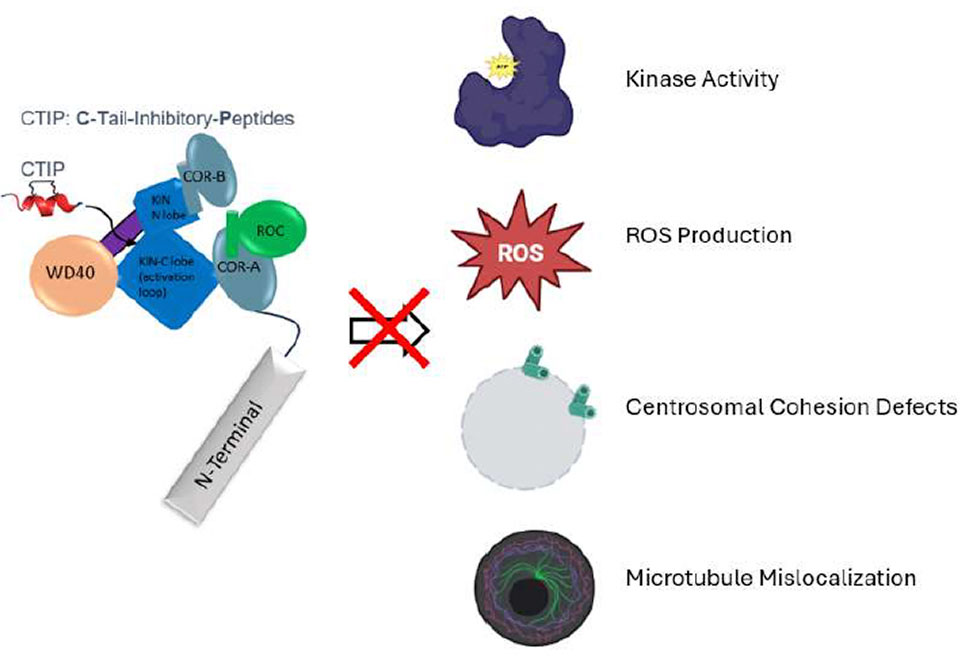Tiancheng Chen
Graduate Student
University of Georgia
Talk Information
Peptide Therapeutics from Discovery to the Clinic
17 June 2025, 10:55am - 11:05am, in the Pacific Jewel Ballroom
L29 - YI6 – C-tail Mimics of LRRK2 Downregulate Kinase Activity in Parkinson’s Disease

Tiancheng Chen is a Ph.D. candidate in the Department of Pharmaceutical and Biomedical Sciences at the University of Georgia's College of Pharmacy. He conducts his research under the mentorship of Dr. Eileen J. Kennedy, focusing on the development of constrained peptide modulators targeting kinases implicated in human diseases.
Academic Background
Mr. Chen earned his Bachelor of Science in Biological Sciences from ShanghaiTech University in 2020. He subsequently served as a research assistant at the Institute of Biophysics, Chinese Academy of Sciences, from August 2020 to May 2022. He commenced his doctoral studies at the University of Georgia in 2022, where he continues to advance his research in peptide chemistry and chemical biology.
Research Focus
Mr. Chen's research centers on the design and synthesis of hydrocarbon-stapled peptides to modulate the activity of Leucine Rich Repeat Kinase 1 (LRRK1), a protein kinase associated with bone development disorders. By stabilizing alpha-helical structures through peptide stapling, his work aims to develop potent and selective modulators that can serve as tools for studying LRRK1's biological functions and as potential therapeutic agents.
Notable Publications
Targeting Rab-RILPL interactions as a strategy to downregulate pathogenic LRRK2 in Parkinson's disease, Journal of Peptide Science, 2024.
BMP-ACVR1 Axis is Critical for Efficacy of PRC2 Inhibitors in B-Cell Lymphoma, Advanced Science, 2024.
Amino porphyrin-peptide assemblies induce ribosome damage and cancer stem cell inhibition for an enhanced photodynamic therapy, Biomaterials, 2022.
Professional Engagements
Mr. Chen has actively participated in scientific conferences, including presenting his research at the 2024 Southeastern Chemical Biology and Drug Discovery Symposium. His work contributes to the broader understanding of kinase regulation and the development of peptide-based therapeutics.
Through his innovative research and academic pursuits, Tiancheng Chen continues to make significant contributions to the field of chemical biology, particularly in the development of constrained peptides for therapeutic applications.
C-tail Mimics of LRRK2 Downregulate Kinase Activity in Parkinson’s Disease
Department of Pharmaceutical and Biomedical Sciences, College of Pharmacy, University of Georgia, Athens, Georgia 30602, United States
Leucine-rich repeat kinase 2 (LRRK2) is the most commonly mutated gene in Parkinson’s disease (PD), a neurodegenerative disorder affecting over 10 million people worldwide. Pathogenic mutations in LRRK2 often result in hyperactivation, leading to detrimental effects such as centrosomal cohesion defects. Despite the recognized contribution of hyperactive LRRK2 in PD, the mechanisms by which multiple domains in LRRK2 regulate its activation and activity have not been well understood.

Here, we designed a library of constrained peptides, termed C-Tail-Inhibitory-Peptides (CTIPs), to mimic the C-terminal tail of LRRK2 to investigate its role in regulating LRRK2 activity. We demonstrate that these cell-permeable peptides bind to LRRK2, downregulate its kinase activity, and suppress downstream effects, including substrate phosphorylation, reactive oxygen species (ROS) production, and centrosomal splitting. Unlike many ATP-competitive type I LRRK2 kinase inhibitors that induce toxicity and mislocalization of LRRK2 within cells, these constrained peptides do not disrupt LRRK2 localization. Our findings suggest that the C-tail of LRRK2 plays a critical role in its regulation and presents a promising alternative approach for targeted LRRK2 inhibition.

